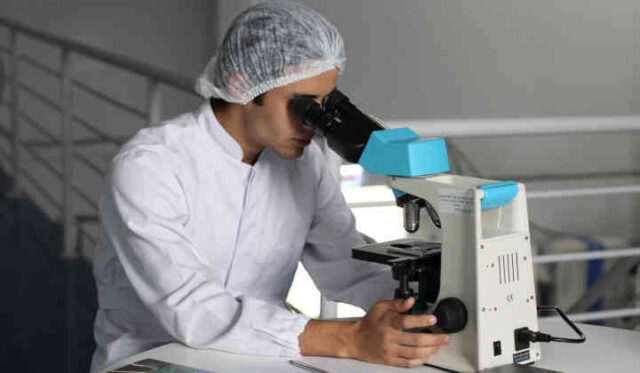This article by a philosopher argues that science is the best way to know things, “because scientific knowledge is better than non-scientific knowledge”.
It’s an important question, because it helps us to think about how much we should trust science, and scientists, when they tell us things. What about when scientists try to use science to resolve non-scientific questions, such as ethics or religion?
So is he right? Is he wrong? Or is he half right? For what it’s worth, here’s my take on it.
The enormous value of science
Science has an amazing record of discoveries over the past couple of centuries. It is difficult to imagine life without vaccines, computers, planes, satellites, mobile phones, TV and medical scanning. All the results of scientific discovery and then technological development.
We might be less excited about smart bombs, spam email, selfies, men on the moon and reality TV, but they too only exist because of scientific discoveries.
Why is science so successful?
Science is successful because it deals with tangible things that can be observed, measured and manipulated in experiments. And then repeatedly observed, measured and manipulated, to verify the results.
Scientists take these observations, and construct hypotheses with measurable outcomes, that can then be tested. Bad conclusions can be corrected, vague conclusions can be made more definite, and good conclusions can be improved.
Done rightly, knowledge is always improving.
The scientific method is thus a far better way of drawing conclusions about the physical world than armchair philosophy or guesswork. It’s no wonder many scientists and philosophers are so enthusiastic that they think it is the best way to know things. Some even think it is the only way to reliably know things.
Is that the whole picture?
I don’t think that is the end of the story, for there are things that science doesn’t do so well, or even cannot do at all. Let’s look at a few.
Science and personal experience
There are many things about myself that only I can know. No-one else can know them unless I tell them. For example, whether I like chocolate more than coffee, what it feels like to be me, and what I’m thinking right now.
And the same is true about you, and about every person who ever lived.
Science can measure brain activity and determine which areas are active when I think or do something, and so can in some respects know if I am thinking about eating or God, but it can’t know what it feels to be thinking those things. Our feelings, tastes, loves and fears are much more than just brain waves.
Science looks in, objectively, from the outside, but my feelings can only be known subectively from the inside. The best way to know what I’m thinking is to ask me.
Personal relations
Love and friendship are unpredictable. People fall in love with surprising people sometimes, and often those relations are life-long and happy. Doubtless psychologists could help us choose a partner using scientific assessments, but most of us get by just fine without that.
We mostly think experience and choice are better than a computer or a psychologist telling us who to love, and we seem to be right more often than we are wrong..
Ethics
Most people believe some things are truly right and wrong, and so we “ought” to do some things and avoid others. (It is true that some people don’t believe this, but they are still the minority, and they don’t always live that way.)
But science cannot tell us this. Science can measure ecological, financial, psychological or physical harm and value, but it cannot demonstrate scientifically what we ought to do about harm or value.
An important area of life requires something science cannot provide.
History
History (obviously) happened in the past, where events can no longer be observed and cannot be repeated. While science can assist historians (through archaeology, linguistics, etc), our main knowledge of the past come through testimony – people’s memories, documentation, etc. And memories are fallible, observers and testimony can be biased and incomplete or inaccurate.
Historians have to sift evidence, compare different accounts and make probabilistic judgments based on the small amount of this testimony that survices. Historical knowledge is therefore always provisional – some new evidence may always turn up. (In this, history isn’t any different in principle to science – science is just more testable and repeatable.)
Nevertheless we can know many historical facts with a fair degree of confidence – another example of knowledge where science isn’t the best way of knowing.
The supernatural
People around the world and through time report experiences that seem to them to be supernatural – visions, appearances of a god or guru, audible voices, near-death experiences, remarkable healings, ecstatic or mystical experiences, a sense of presence or guidance in a situation. It is tempting to think such people are mentally ill, hallucinating, imagining things, etc, but studies have shown that the majority are normal and often highly intelligent people. And the experiences tend to make positive impacts in their lives.
How can the truth of these experiences be assessed?
Science can certainly help. Medical science can verify (or not) that a patient was really suffering from a condition and later that unexpectedly they are now well. The psychological state of people can be professionally assessed, and brain activity can be monitored.
But science totally lacks the tools to measure the alleged activity of a God or angel, not can it truly measure how the experience felt – we can only understand these experiences via testimony.
But since science cannot measure any activity of God, does this mean that there was no activity and hence no God? Obviously not! If science has no means of measuring, then it has no means of denying or affirming.
We are left, then, with the external things science CAN measure and the testimony of millions of people. So again we have an aspect of life that science can only make assumptions about. Personal testimony remains the primary way of knowing about these experiences.
Science has limitations
We started by saying that scence has contributed enormously to our quality of life, and, unfortunately, not a little to our ability to harm others. That remains true, and we should utilise science wherever we can use it for good.
But we have seen a number or areas of life where science is NOT the best way to know things – and these include some very important aspects of being human.
I think our philosopher friend has claimed too much.
Photo by Pixabay





Hi Eric
Hope you and the family are well
My own scientific training taught me to define science as follows: “The empirical observation and (Assuming its feasible) manipulation the physical world”
That’s it. Period. While I love science I personally find zero meaning in it. At best it can inform my beliefs and non-beliefs,
I’ve personally never understood how anyone can claim that we can base everything we do and think (such as right and wrong) on science. I’ve found (and I’m only speaking about my personal experiences and research) few scientists or philosophers actually truly believe all we need is science to know things. A quick search on so-called “scientism” and it’s very quickly shown to viewed as absurd even among atheist thinkers like Thomas Nagel or Paul Feyerabend,
I personally find it a bit puzzling when someone, lost in a false triumphalism, declares “Philosophy is dead” and then fails to realize that that view is in of itself practicing a philosophy (wither they know it or not).
Personally I deeply oppose trying to turn science into ideology. Luckily, I’ve found that most who think deeply about this, be they religious or not, don’t endorse what is essentially just re-branded Logical positivism (Which died out as much as a school of thought can for good reasons). Additionally, if you are only going to believe in what is empirically observable, I then have to ask how are you going to empirically test the hypothesis “Only science can answer things reliably” in a lab?
Lastly, I would say that just because something can be physically explained (in terms of how it physically got there), it says absolutely nothing about why it’s there, why does it exist in the first place, what’s it’s meaning if any?.
I suspect that, when someone says something like “I only believe in science” or “I only believe the bible literally” what they are really doing is signaling their allegiance in largely useless and artificially created culture war.
But that’s just this hopeful agnostics two pence.
Good to be reading you again Eric.
Stay healthy out there!
Aaron
Hi Aaron, thanks for your comments. It seems that we see this fairly similarly. I think it is especially interesting and true what you say about those who dismiss philosophy are still doing philosophy at that point. Thanks for reading.